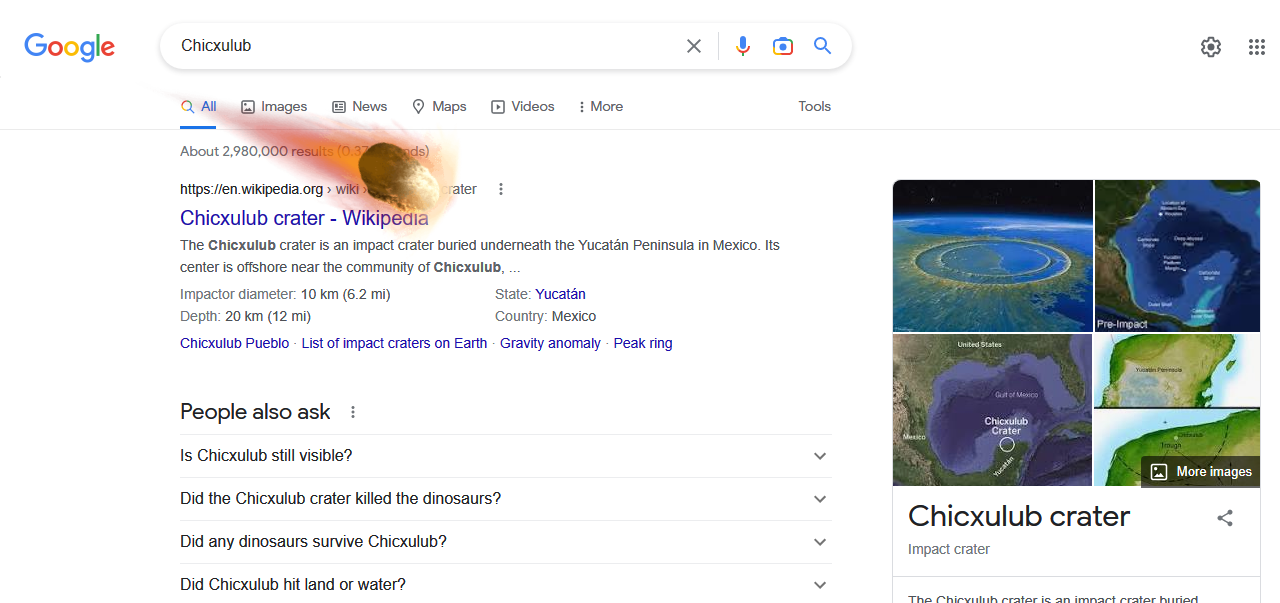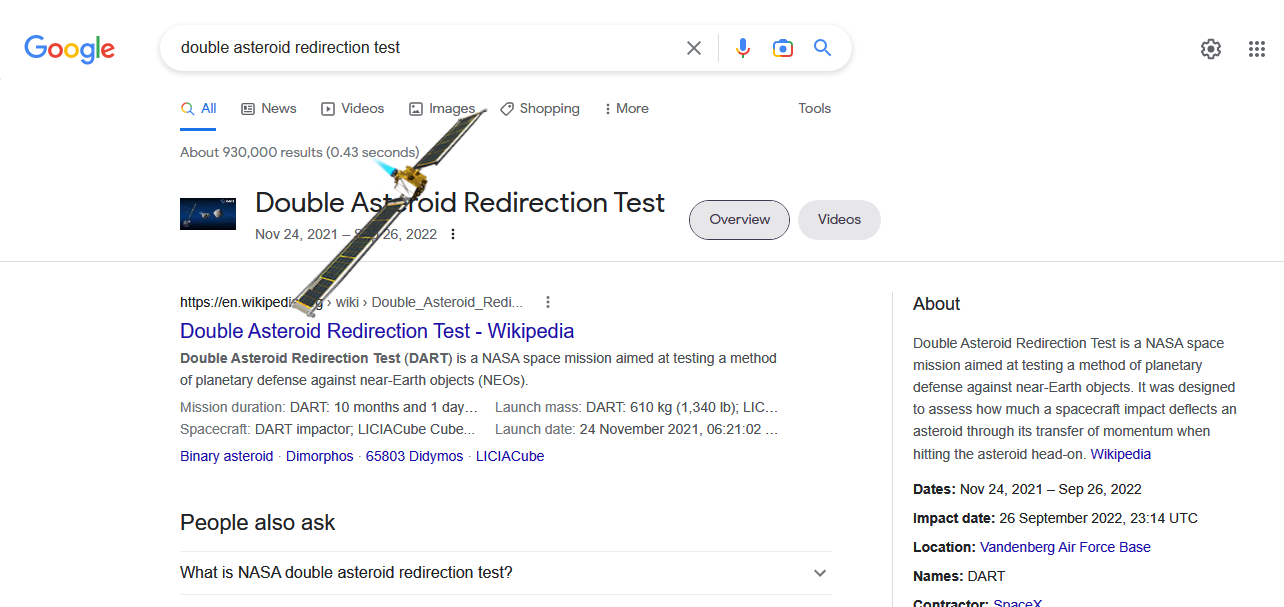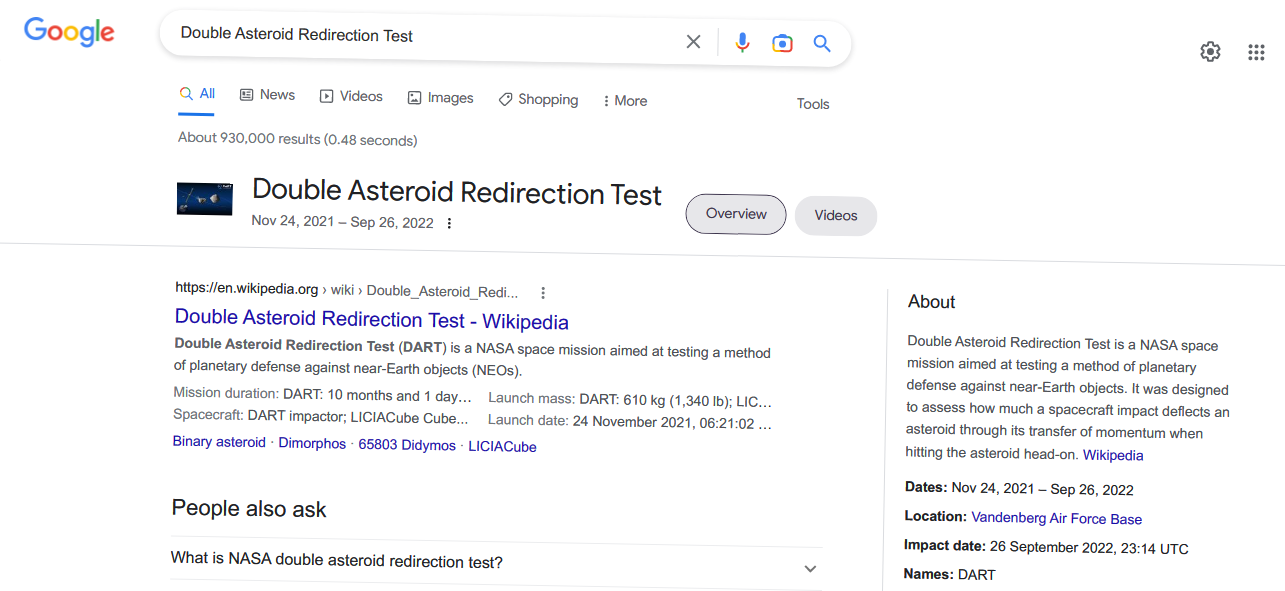A youth-oriented Filipino science organization reshared a space agency’s post about a Google trick that happens when one types a particular word in its search bar.
Earth Shaker Philippines on Tuesday reshared the European Space Agency‘s post which featured a screengrab of a Google search engine results page for the word “meteorite.”
“Hey, have you typed ‘meteorite’ into Google yet? Wait for it… (winking emoji) #PlanetaryDefence #Spacerocks,” ESA said on Facebook on Monday.
The local science org reshared this to its Filipino followers with a similar caption.
“Have you tried it yet?” Earth Shaker said.
Some Pinoys who already did the trick left their thoughts in the comments section.
“Naramdaman [niyo] po ba ang impact?” a Facebook user wrote.
“Lakas ng shockwave,” another online user commented, sharing a screengrab of the trick on his device.
“Muntik [nako] tamaan,” another Facebook user quipped.
“Gagi! Nabasag screen ko. Lakas ng impact! Huhubells,” a different Pinoy joked.
The trick involves users going to the Google search engine homepage and typing “meteorite.”
They will then be greeted with an animation of a meteorite passing by their screens and then landing on the lower right portion with an impact.
A video of the trick was recorded by a Facebook user, who shared it in the comments section.
Other users said that the same phenomenon happens when one types “Chicxulub” or “Chicxulub crater” in the search bar.
This refers to the phenomenon that marked one of the most catastrophic events in the earth’s history some 66 million years ago, when an asteroid slammed into the sea just offshore of Mexico’s Yucatán Peninsula.
The impact triggered a sequence of events that led to some 75% of animal and plant species being extinct.

Meanwhile, an animation also appears when an internet user types “Double Asteroid Redirection Test” on Google, according to a Facebook user.

It also tilts the screen of the users for an added effect.

Recently, news agencies worldwide have been reporting about meteors and meteor showers.
In the Philippines, a report about a meteor possibly being encountered by Palaweños over the weekend surfaced.
Last Saturday, residents of the towns of Bataraza and Rizal reported hearing an explosion and a tremor after an unknown object fell from the sky.
The Philippine Space Agency said it might be a meteor entering the atmosphere.
British daily The Guardian also recently reported that United Kingdom residents were able to spot a meteor “shooting through the night sky” on Monday.
“Just saw the most astonishing meteor/fireball of some sort shoot across the sky. It had multiple discernible colors — blueish white core, bright red outline and streak — unlike anything I’ve ever seen,” an aerospace enthusiast tweeted before.
Last week, people were greeted by the first celestial event in January — the Quadrantid meteor shower.
Reports said this major shower is known for producing bright fireball meteors with larger explosions of light and color than the average meteor.
Meteors are meteoroids that enter the earth’s atmosphere at high speed and burn up. This phenomenon produces a passing streak of light in the night sky, making people refer to them as “shooting stars.”
If meteoroids survive the trip and eventually hit the ground, they are called meteorites.
Meteoroids are mostly pieces of other larger celestial bodies that have been broken or blasted off. Also called “space rocks,” they come from comets, asteroids, the moon and other planets.










